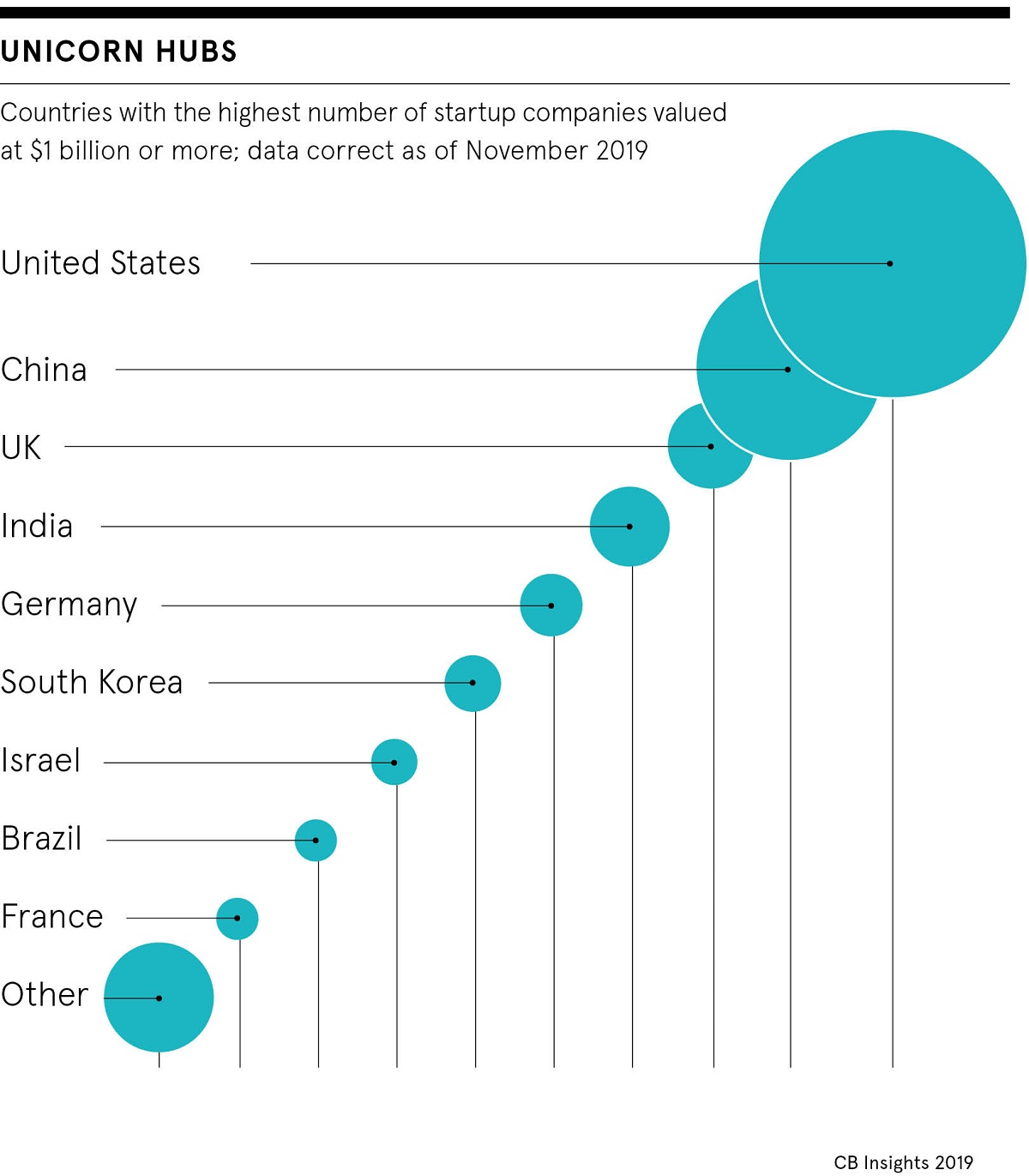1. Close connections with universities
Congratulations, you’ve decided to start a tech business. Now the question is where to base it and operate from.
Probably the most important thing to consider when choosing a startup hub is access to bright minds to fill the jobs that will be created. For this reason, it’s ideal to pick a city where there’s a presence of world-class universities and internationally recognised research institutes.
Priya Lakhani, founder and chief executive of artificial intelligence-powered edtech platform Century Tech, says what makes London one of the better startup hubs for a base is you’re at the centre of some of the best institutions and people around, not just graduates, but academics, engineers and more.
The impact this can have can send ripples through your business and beyond the recruitment process. “Being able to work closely with academics ensures we grow in a research and evidence-led way,” says Ms Lakhani.
2. Creative and low-cost lifestyle
A big draw for graduates looking for work is the lifestyle on offer. It may often be a dealbreaker when they decide whether to stay in the city where they studied or move elsewhere.
Daniel Nathrath, chief executive and co-founder of Ada Health, says Berlin is the perfect city for his company, which is behind the symptom checker smartphone app Ada and has been in business since 2011. This is thanks largely to Berlin’s creative culture and relatively low cost of living compared with other major international cities
Startup hubs that can offer this have a wider pool of talent to hire from, which means you can access high-quality skills from across a range of disciplines, he adds.
Described in 2003 as “poor but sexy” by the then-mayor of the city, Berlin is now vying with other European cities to become the Silicon Valley of Europe. “It’s been fantastic to see the city’s tech scene grow and flourish over the last eight years,” says Mr Nathrath.
3. Lower wages, leaner operations
Once your startup is experiencing significant growth, you might decide to open offices in other locations. Insurtech startup Kasko is headquartered in London and has expanded to Germany, Singapore and Latvia since it was founded in 2015.
According to co-founder and chief technology officer Matt Wardle, choosing Latvia was a no-brainer. He had previously managed development teams there for Accenture and was aware “it’s a highly educated country with hard-working people, so there’s a rich talent pool of hungry candidates”.
A key factor that makes Latvian capital Riga one of the up-and-coming startup hubs is the cheaper wages compared with other countries, including the UK.
“Latvian salaries are actually around 70 to 80 per cent of the UK’s. And people here prefer full-time jobs over contract work, which has allowed us to grow a sustainable team of happy, loyal colleagues,” says Mr Wardle. “We get to pay above the average wage while making savings elsewhere. A thirty-two-person office with all the trimmings in Riga costs the same as an office for eight in London.”

4. Good transport links
Opening overseas offices close to your headquarters’ time zone, like Kasko has done in Riga, makes operations easier, but building a remote culture can bring its own challenges.
It’s for this reason that you should base yourself in a city with good transport links, road, rail and air. “Several times a year we get everyone from all our sites together to work, relax and grow. Those cheap flights become another Riga blessing,” says Kasko’s Mr Wardle.
The startup hubs with good transport infrastructure are likely to have a more mobile and agile ecosystem. It helps a city to be more accessible, attract talent from outside and create links with other startup hubs. This, in turn, can foster the type of entrepreneurial community that drives future innovation and makes a city appealing to investors.
Paris, for example, has the third-best public transport system in the world, according to Arcadis’ Sustainable Cities Mobility Index, behind Hong Kong and Zurich. Two years ago, a disused Paris rail depot was turned into a startup incubator, Station F, backed by French tech billionaire Xavier Niel, who funded it with €250 million.
5. Championing startup success
A recent study by EY revealed Paris has overtaken Berlin for startup investment. Over the first half of 2018, investments in the French capital totalled €2.2 billion, compared with €2 billion in the German capital; half-year figures for 2017 were €1.4 billion and €1.6 billion respectively.
Paris’s ambition to establish itself as one of the leading startup hubs in the world is being supported by the French government. In September, President Emmanuel Macron announced €5 billion of funding, pledged by private sector investors, will be poured into tech companies looking for late-stage investments over the next three years.
“The French have been very successful at promoting Paris globally. Macron has championed our tech sector, inviting global leaders to France Digitale Day [a leading tech event in Europe] and speaking at the launch of Station F,” says Romain Paillard, co-founder and chief operating officer of coding bootcamp Le Wagon.
“All this has helped to build buzz and pull talent towards France’s tech scene, both French nationals returning from Silicon Valley and those attracted to the innovation the city promises. Paris is gaining confidence. It’s learning from Silicon Valley without slavishly copying it.”
1. Close connections with universities
2. Creative and low-cost lifestyle
3. Lower wages, leaner operations

